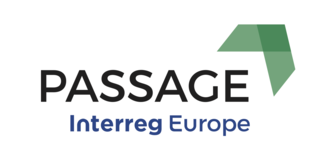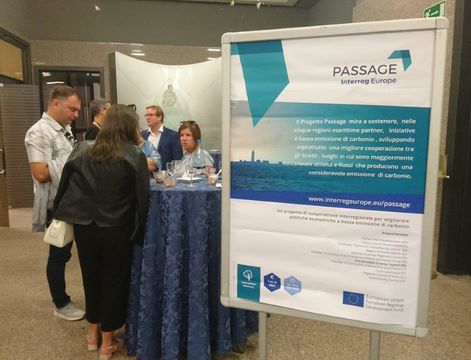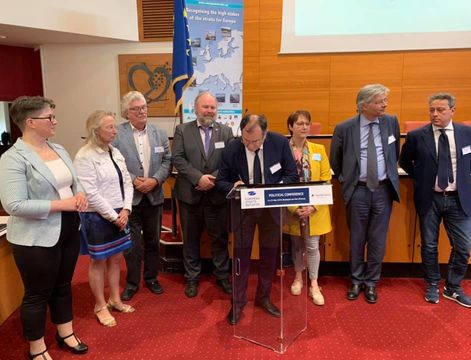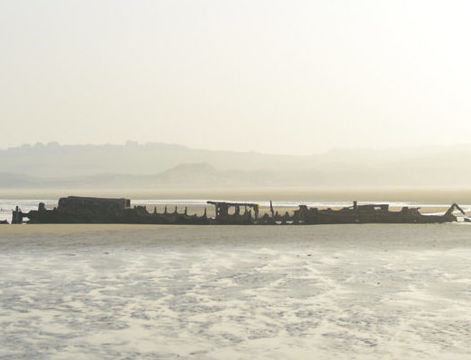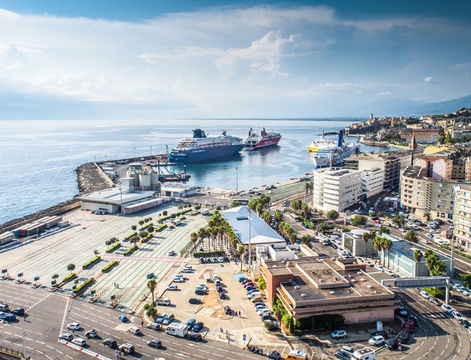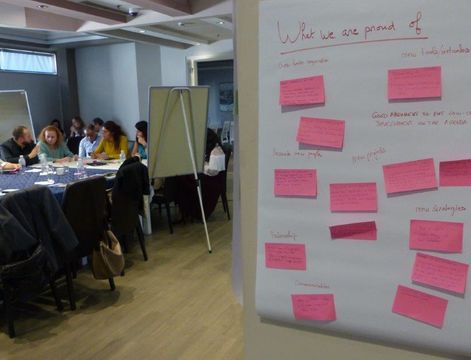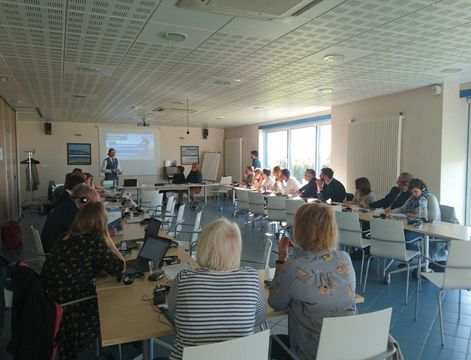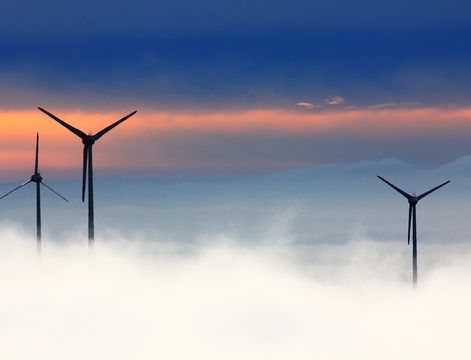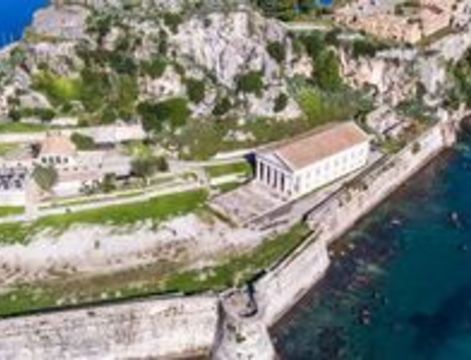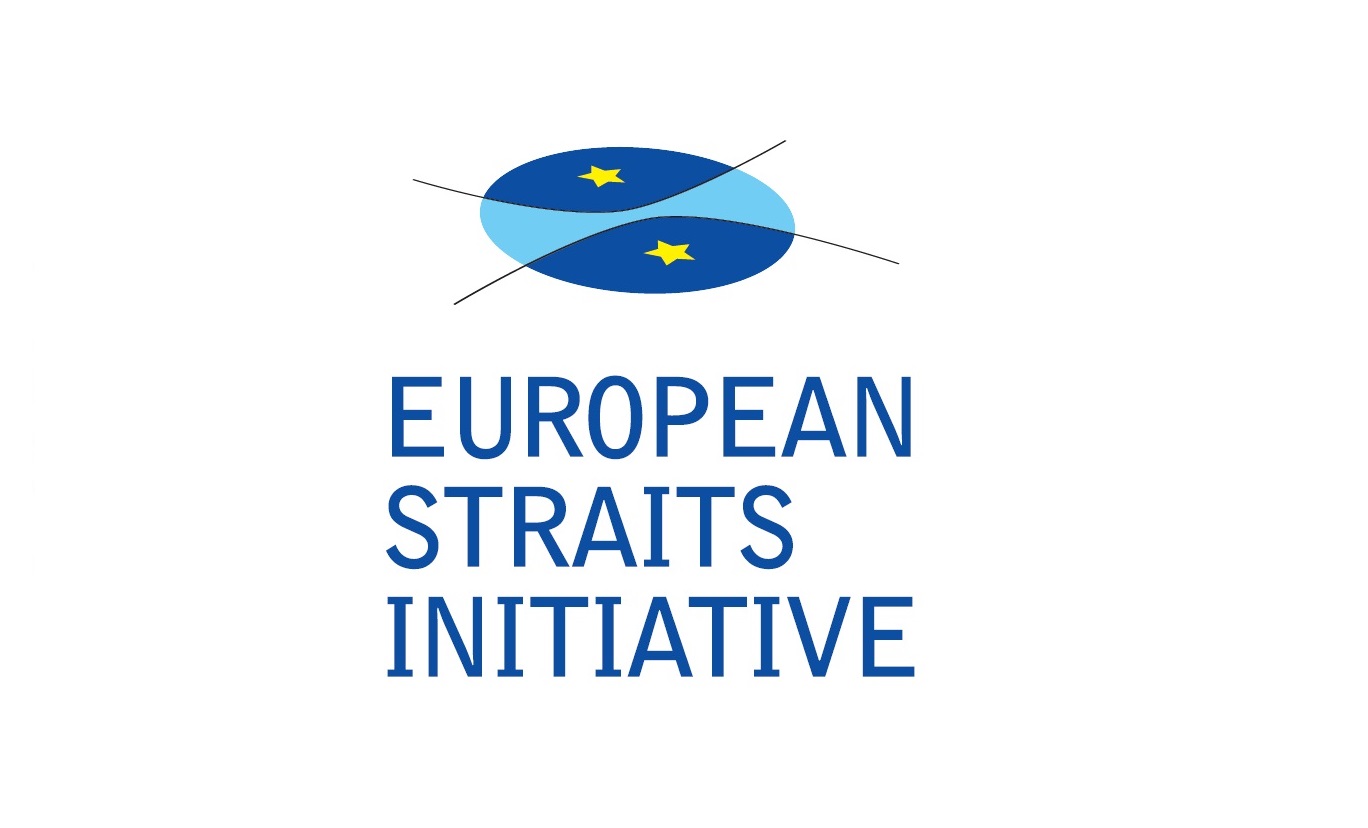On 7 and 8 November 2017, PASSAGE partners gathered in Corfu for a seminar dedicated to the elaboration of cross-border action plans for low-carbon transition.
The first phase of PASSAGE project, dedicated to exchange of successful experiences among maritime border regions of the partnership, is ending in March 2018. The seminar which took place in Corfu on 7 and 8 November was the opportunity for PASSAGE partners to move on in the drafting cross-border action plans based on these learnings, to trigger the transition to a low-carbon economy and to contribute to the reduction of carbon emissions and mitigation of climate change in each maritime border region. The partners and the involved stakeholders in each partner region will continue this important work in the coming months and commit to the implementation of the selected actions until 2020.

To feed their action plan and make sure it can answer efficiently to the main challenges of their territories, PASSAGE partners have undertaken a carbon emissions’ study on the 6 straits involved in the project. The study, using the same methodology for each maritime border region, is calculating the carbon impact of the main activities on each strait: maritime transportation, port operations, industrial activities, but also hinterland traffic, for example. I-Care Consult, selected by the partnership to perform the study, was invited to the seminar to discuss the main results of the study and answer the partners’ questions. The definitive version of the carbon study of PASSAGE project will soon be published on this website.



PASSAGE partners have also taken the opportunity of this seminar to discover the specific features and challenges of the Strait of Corfu. The Director of Corfu port authority explained the main lines of the masterplan for the development of the port, under the pressure of a constant augmentation of traffic. Partners discussed the opportunities around the development of renewable energy in the port and the potential for development of LNG or hybrid electric vessels, which are not considered today as a suitable solution by the operators of ferries due to the issue of electric production in the island. Many questions were raised about the opportunities around cruise traffic, which has an important economic impact for the city of Corfu and the island more generally, but results in an important pressure on the environment and infrastructures (for waste management, for example).


The Governor’s olive oil factory was another example of key economic activity on the island. This traditional activity of olive culture and its transformation into oil is now facing new challenges, linked to the new customer demand for high quality and the raise of environmental expectations and concerns. The Governor’s olive oil has been many times granted for its excellent quality, not only in terms of taste but also of health, thanks to an important effort of mutation of the old practices for olive collection and transformation into innovative practices preserving the best qualities of the olive at all the steps of the production process. The environmental impact of the production is particularly taken into account, with the development of renewable energy on site and based on the principles of circular economy and use of all resources from the olive.
